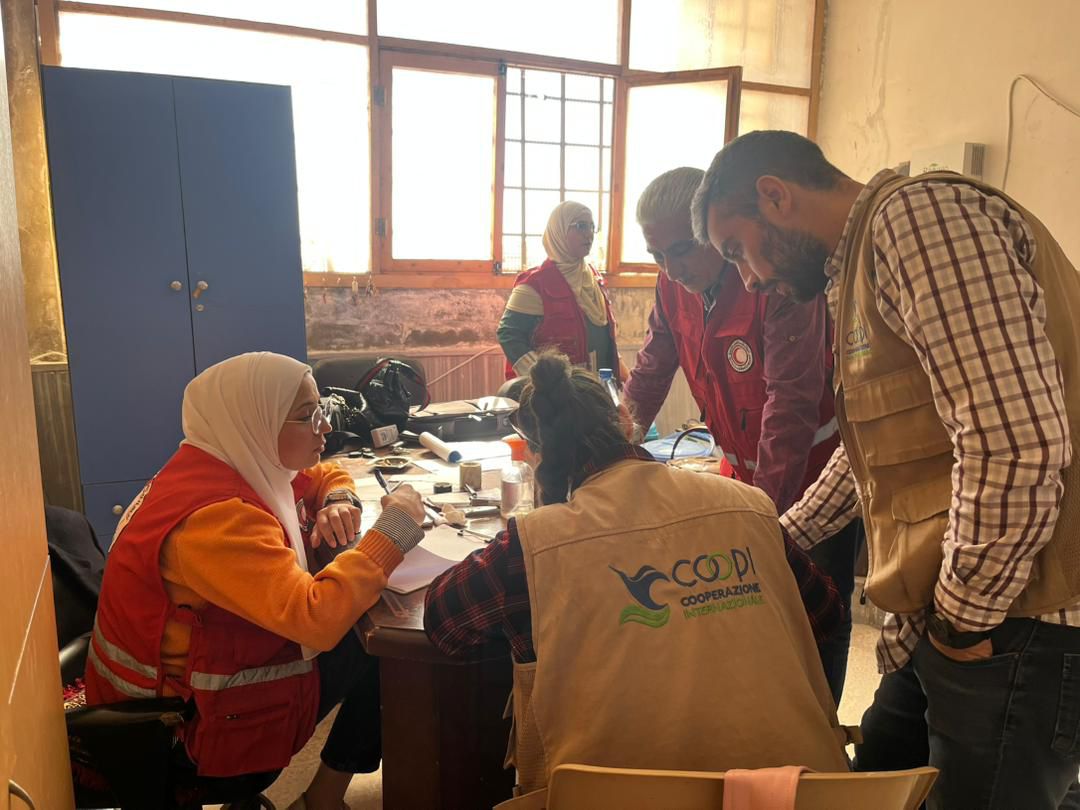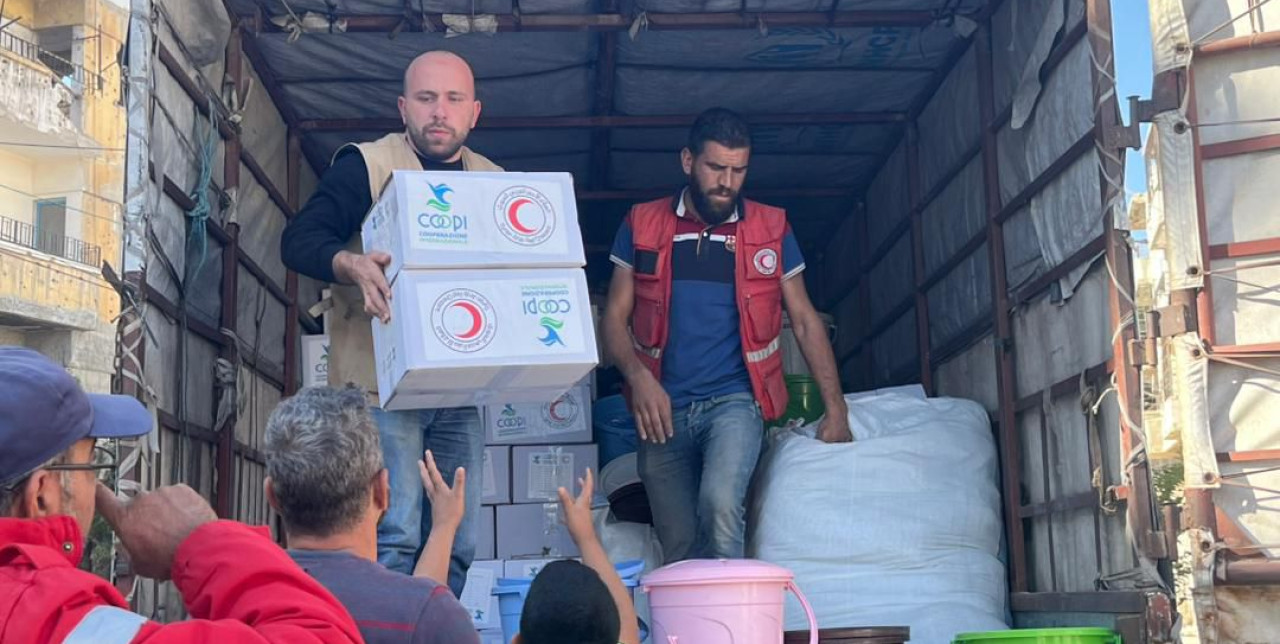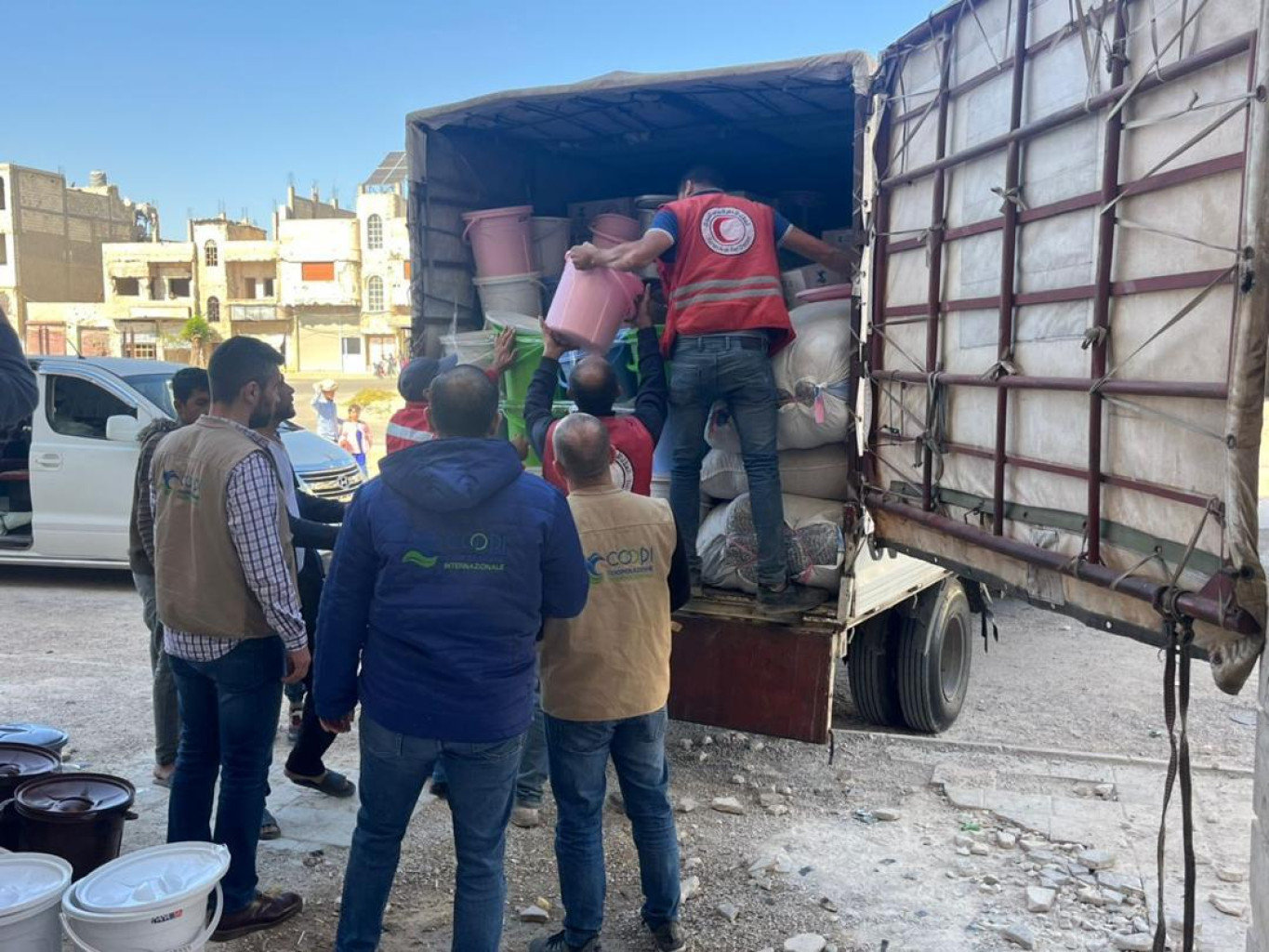29-10-2024 | di COOPI
Lebanon crisis: COOPI's response for refugees in Syria
COOPI - Cooperazione Internazionale has stepped up its response to the humanitarian crisis in Lebanon by activating two emergency projects in Syria to provide life-saving assistance and improve the psychological well-being of more than 8,350 refugees. As a result of the conflict in Lebanon, more than 425,000 people crossed the border into Syria between 23 September and 21 October, seeking refuge in a country already hard hit by one of the world's worst humanitarian crises. Of these refugees, 71% are Syrian nationals, returning to a country from which they fled, while 24% are Lebanese, coming from a country that, despite having a poverty rate of 44%, has been the most receptive to refugees in the world.
COOPI emergency response in Syria
The first project COOPI is carrying on targets 870 families (around 4,350 people) temporarily sheltering in community centres in Hama and Latakia governorates, with a special focus on children and youth. Here, COOPI is distributing hygiene kits and food parcels to cover one month's needs, addressing food and hygiene insecurity. In addition, psychological support will be provided to 1,088 vulnerable people, mostly children and women, as well as psychosocial support kits for families with children, accompanied by recreational activities to improve the emotional and social well-being of 1,740 minors.
The second project that COOPI has activated in community centres in the rural areas of Damascus and Homs, targets 800 families (about 4,000 people). Here too, COOPI is providing essential hygiene kits and food parcels to cover a month's worth of food shortages, as well as psychological first aid for 1,000 people, with a particular focus on helping those who have suffered traumatic experiences.

Both interventions aim to ensure immediate survival support and psychosocial stability for displaced communities, with an integrated emergency response approach that aims to reduce vulnerability and increase resilience of families affected by protracted crises.
The situation in Syria: displacement and humanitarian needs
UNHCR estimates that more than 425,000 Lebanese and Syrians fled the conflict in Lebanon and crossed the border into Syria between 23 September 2024 and 21 October 2024.
To cope with the emergency, the Syrian authorities opened six border crossings to refugees, receiving most of the arrivals at the Jdaidet Yabous crossing. The Syrian Arab Red Crescent (SARC) and UNHCR data on the socio-demographic profile of the displaced show that 71% are Syrian and 27% Lebanese, both mainly from southern Lebanon. Of the 425,000 arrivals, about 114,000 are families, many of them headed by women. As of 22 October, some 1,761 Lebanese families, mostly women and children, are housed in 21 reception centres. Limited access to basic services and overcrowding undermine the protection of women and girls.
COOPI's work, which began in Lebanon in 2013 and in Syria in 2016, has enabled a rapid response to the current crises, extending support to tens of thousands of people. Its deep-rooted presence on the ground enables it to best respond to the new challenges posed by the escalation of the conflict and to provide assistance to the most vulnerable, even in the most desperate situations.




 Syria
Syria
